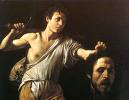
When I was a teenager, a friend of mine once said that people never talk as intimately as when they are cleaning out their ears with a q-tip. I have learned over the years that, although an adolescent made this comment, there is quite some truth in it. Hot Rain is a witty, fast-paced collection of poems that focuses on language, memories, and sound. The author is like a q-tip, and Galluccio’s going to get the wax out. Lo Galluccio, a lyricist and poet, flows between the spiritual path of abstractions into the concrete world of images that she drums up like a percussion soloist. You can hear the beat she establishes pumping through your veins. Then, when she has you in sync she craftily starts to augment and diminish, to run around in circles that examine the very act of speaking, thinking, and loving. In this way, these poems are able to make you anticipate a certain word based on the rhythm and then change course on you and surprise you with a new word, new sound, and new image—a new thought. This is the delightful gift of Lo Galluccio. She knows you’re there and she knows who she’s talking to, yet she’s decided to clean out your ears until you hear her unique, mystical incantations. She takes your hand and leaps into a transcendental world, but don’t think it’s all abstract and flimsy. The images are hard and real and the language is a code Gallucio has studied. Take a look at “1. The Come On” where Galluccio masterfully employs hard, crisp language:
Make me act.
Buy the red dress.
Wriggle—a slut
of gum—for your
hard pink.”
This is a great example of how she plays off a reader’s anticipation. I already hear “a stick of gum” in my head, but she twists the q-tip a bit and changes the words on me. The changes are refreshing and help clear your ears of all those stuffy clichés. In “Sarasota IV — Elegy for Anthony” she discusses missing her father with vivid images and cutthroat metaphors. Look at the first stanza:
I wept into granite to raise you
Did you drink? Has God
swallowed like gumdrops your oracle eyes?
Did morphine blind you like Oedipus?
When will we say our good-byes?
You see her actually dripping into the tombstone and wondering if her liquid was swallowed. These poems are real and physical. Yet they are metaphysical as well. With the sober precision of a brain surgeon, Galluccio talks about the abstract. Then, she jumps on her head, and riffs on about concrete images like a stoned jazz soloist.
She’s a studied musician who has done her homework, memorized those two thick songbooks, digested all the chord changes so her improvisations and songs are grounded and welcomed. That’s what we’ve paid for: a front row seat to see her concoct her magic. And Gallucio’s not trying to hide her tricks. In fact, she’s got her arm outstretched. In “The Witch’s Antidote to Sanity” she lets the reader in on her secret, “An artist must switch/ the landscape/ and preside over tunnels.”
Galluccio’s wonderful sense of sound and rhythm allows her to alter words and images while keeping structure and order. This means that every line is readable yet sizzles with energy. She says, “poets have thieving camera eyes/ the way seagulls are scavengers”. Galluccio is certainly a thieving camera, serving up a slideshow of unique images in a rhythmic incantation. As you read, the poems are as surprising as they are lovely—and relentlessly moving around. She’s riffing, she’s improvising, she’s hurtling across the universe.
Her style is bold and classic at the same time. She shows all the erudition of a scholar with the street smarts of a hustler. “The Witch Looks to Map” and “The Witches Antidote to Sanity” are particularly cutting edge in this regard. They force the reader to think hard about what is language, what is society, even what is to thought itself. She muses on what a YOU ARE HERE map is, an arbitrarily guide to a place someone wants you to go that exists in reality. The memorization of the map’s lines and schema is reality; this is sanity. In fact, Galluccio extrapolates, the map doesn’t really exist just like your sanity and insanity are not exactly as concrete as you may have thought. The map, the language you speak and read, the thoughts you have, Galluccio says, are all encoded. Language itself is a code, and the poet is playing with the code and showing you little glimpses of the spaces between codes, the code-cracker’s perspective. The same code in a mirror may not be what it appears to be when you look straight at it.
I allow myself to be shepherded by logistics
and don’t become the breeder of wild sheep.
The sheep of pirates, of dragons, of deep leap.
She praises codes and language. She feels all would be lost without it: “We’re non-readers tumbling through literacy/ snatching angry letters that snatch us back.” She suggests learning the codes, following them and then she adds a touch of rebellion and suggests breaking some of the rules. “The first thing an artist must do is escape.” Escape the YOU ARE HERE map. Be anywhere but HERE inside the engineer’s logistical map. Get inside and outside the code, be code-cracker, code-eater, become code-terrorist. “The way deformity is beautiful,” Gallucio says in the poem “Some things”, the broken code is gorgeous. The manipulated code is poetry. The manipulated code is here as poems in Hot Rain. It’s the words and beat drumming out this book. It’s Gallucio’s great big q-tip. Sit down. Open Hot Rain. Clean out your ears.
by Ralph-Michael Chiaia
poet & editor (http://formonksonly.blogspot.com








No comments:
Post a Comment